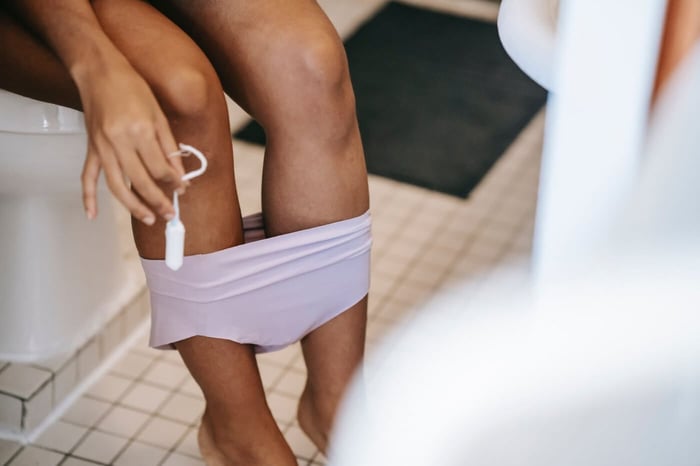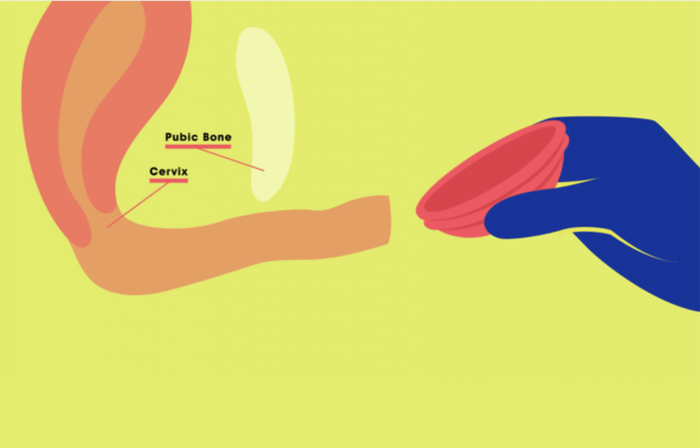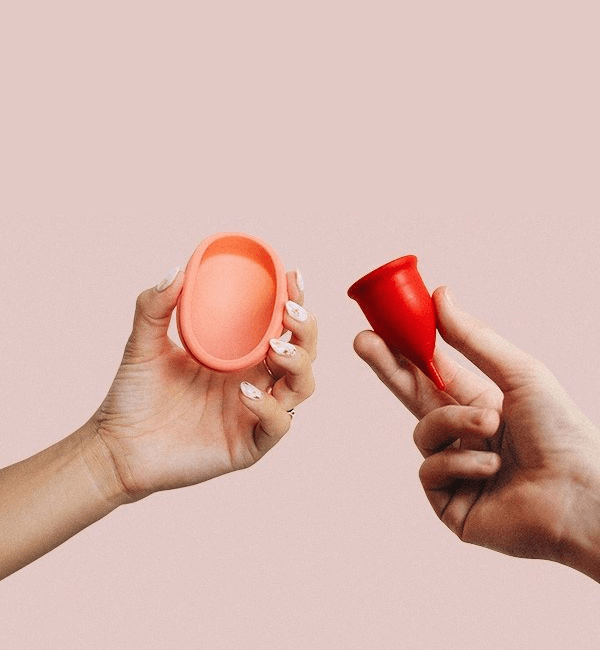America’s nationwide tampon shortage has made it into the news recently as pharmacies and big box stores like Target and Walmart are short on this popular commodity.
This uncomfortable situation has affected 34 million US tampon users in the last several months. While other shortages brought about by the pandemic have sorted themselves out (think toilet paper, yeast, and flour), parents and people with periods seem to have gotten the short end of the straw with formula and tampons still in short supply.
What's more? According to Bloomberg, there has been a 9.8 per cent increase in tampon costs as of May 28, 2022. Even more - if you were to look at Amazon sellers, the average price for tampon products went up six dollars per tampon as of January 2022.
nixit is a progressive leader in period care and today we dive into the underlying reasons for tampon shortages. We also step in with tips and tricks on how to bridge the gap and tackle the situation head-on.
Why Is There a Tampon Shortage?
 Image Source: Pexels
Image Source: Pexels
Is the tampon shortage down to supply chain issues, inflation or something else?
First and foremost, global supply chains have been disrupted due to manufacturing shutdowns and extensive workforce shortages caused by the COVID-19 pandemic. As a result, shortages of baby formula, popcorn, and finally tampons, have followed.
Secondly, demand for the raw materials that go into tampons has exceeded production. It's due to the fact that these materials are also critical for the production of personal protection equipment. As the demand for cotton, rayon, and pulp soared, the supply shrank.
The increased demand for the raw materials has resulted in higher costs. This in turn, has led major tampon manufacturers to raise prices so they can maintain their margins.
According to an Instacart statement to CNET, tampon products saw a 29% retail sales growth in the 4th week of June compared to the 3rd week.
In her statement on tampon shortages, Pricie Hanna, a founding partner of the Price Hanna Consultants company–concluded that higher seasonal demand for tampons has factored into the tampon shortages we see, such as an increase in people partaking in summer activities, like swimming.
What’s the Plan for the Tampon Shortage?
Half-empty shelves have left people questioning what they are meant to do if they can’t buy something that they use every month.
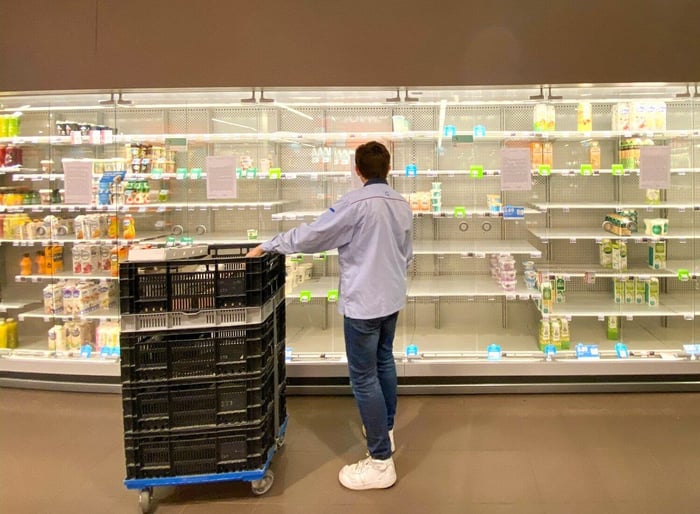
Frustrations people are voicing on social media revolve around topics mostly concerning:
Fears about not being able to find their preferred period product as well as the fact that some retailers are price gouging. Instagram and Reddit posters complain about manufacturers exploiting the emergency situation for financial gain.
The option of transitioning to period product alternatives. People are trying to tackle the situation on their own, not wanting to be dependent on just one period product, while wanting to secure themselves against potential future shortages.
So, what’s the plan if things don’t change shortly and we keep seeing sustained tampon shortages and increased prices? Decreased access to menstrual supplies makes people consider other tampon alternatives, such as menstrual cups.
According to dr. Cybill Ruth Esguerra, assistant professor of gynecology and obstetrics at John Hopkins Medicine, states that, going forward, people will increasingly turn to these options.
“It’s reusable and quite durable, lasting in some cases for years. This tampon shortage, particularly if it continues for many months, might provide just enough motivation for some women to try out this option.”
What to Do If You Run Out?
Menstrual cups and discs have grown in popularity over the last decade. These alternative menstrual products can keep you safe and dry for the better part of the day (read up to 12 hours) while helping solve environmental concerns such as plastic waste. But there’s a long list of benefits that go beyond the environment.
Now get this. One nixit menstrual disc can replace a full aisle of tampons and pads, it lasts up to 5 years and can save you hundreds of dollars over its lifecycle.
Yet, turning to alternative products can be intimidating at first and that’s understandable. If this is you and you still don’t feel comfortable making the switch, below is a rundown of the most important benefits to help you put things into perspective.
They’re safer for users and the environment alike. Menstrual cups are embraced by eco-conscious companies and menstruators for obvious environmental reasons, and they’re also more gentle on your vagina.
While tampons may contain nasties such as BPA, bleach, and pesticides, the nixit menstrual disc is made from 100% medical grade, BPA-free silicone.
Apart from that, menstrual cups generate a lot less waste compared to tampons which often come wrapped in plastic or with plastic applicators. Using a nixit menstrual disc will reduce your waste by 99%.
They’re more convenient to use. Menstrual cups don’t need to be changed as often as tampons or pads and can in fact last you up to 12 hours at a time.
The nixit menstrual disc holds up to 70 ml of fluid - that’s over four times what the best tampon can absorb. What's more? Being that it’s a disc-shaped menstrual cup, it can be self-emptied while using the toilet (without fully removing) making for super convenient period care.
They’re more comfortable to wear. Menstrual cups beat tampons in terms of how comfortable they are. Tampons can be drying and irritating because they absorb fluid, whereas cups collect period blood.
nixit has designed a menstrual cup to be as thin as possible, and its soft and supple nature creates a perfect fit for your body. It gives you the ultimate comfort while conforming to your vaginal fornix seamlessly. It’s also suction-free promising no discomfort on removal.
@letsnixit Ouch! Who has been there? #tampons #periodproblems #periodrelatable ♬ original sound - Chloee Taking Your First Step Towards Sustainable Menstrual Care? nixit Has Your Back
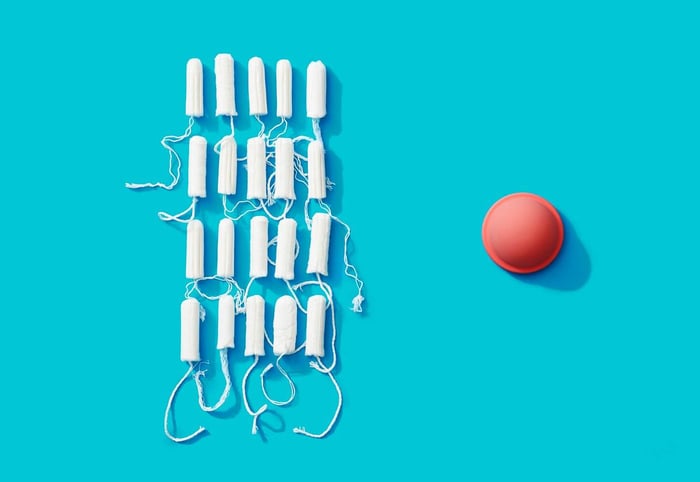
The latest tampon shortage in the U.S. caused by supply chain issues, worker shortages, and inflation has led people to voice their concerns and seek alternative menstrual care products.
Most importantly, it has left tampon users super stressed while waiting for the aisles to stock up on their favorite tampon brands. And the real question here is, are tampons worth the wait?
Reusable period products can do the job just as well, while providing 12-hour coverage, protecting the environment, and saving you money over time.
Yes, a menstrual cup comes at a higher upfront cost, but when you look at the savings in the long run, well, it measures in hundreds and even thousands of dollars saved.
So next time you can’t find tampons in your local store, think about giving the nixit menstrual disc a try! We hope you’ll find it more comfortable and convenient than traditional pads and tampons.
Still have doubts about whether menstrual cups or discs would make a good fit for you? Our popular Menstrual Disc A to Z Beginner Guide will answer all your questions.

